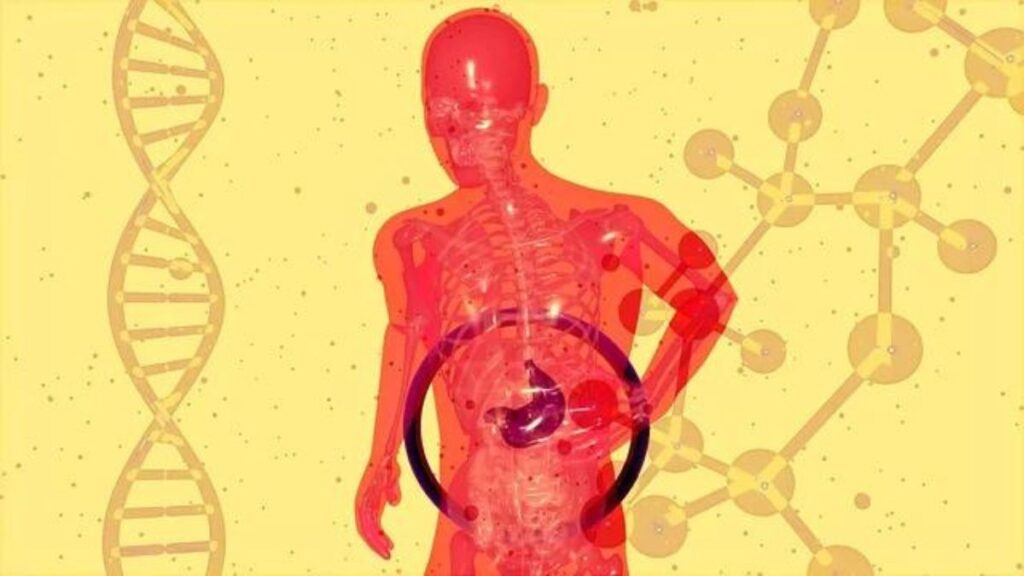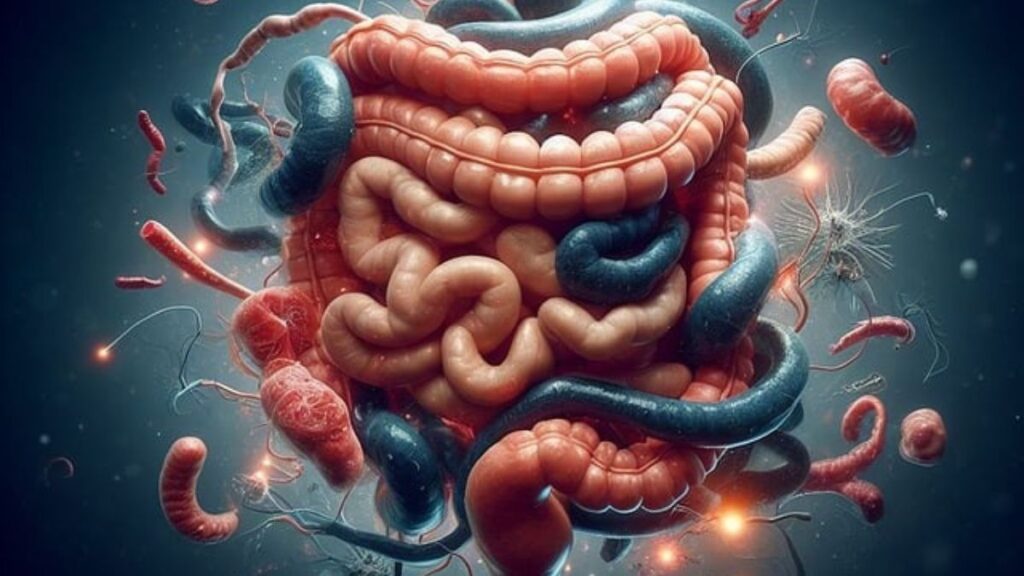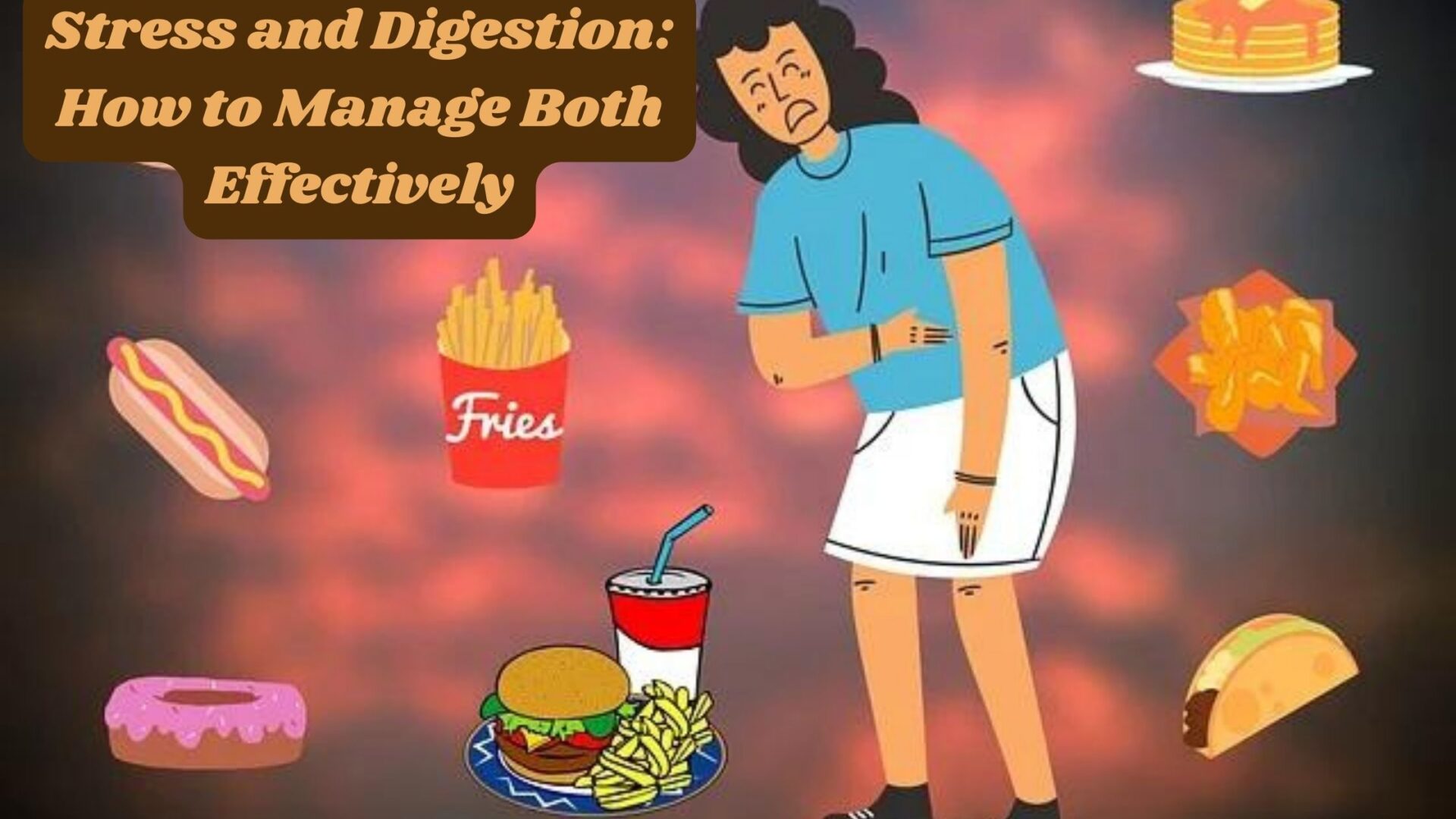Introduction:-
Stress and Digestion: How to Manage Both Effectively

In today’s fast-paced world, stress has become an inevitable part of our lives. It affects us mentally, emotionally, and physically. One often overlooked aspect of stress is its impact on our digestive system. Chronic stress can lead to various digestive issues, but the good news is that there are effective ways to manage both stress and digestion for a healthier, happier you.
What is the link between stress and digestion problems?
Understanding the Stress-Digestion Connection
To effectively manage stress and digestion, it’s essential to understand the connection between the two. When you’re stressed, your body goes into “fight or flight” mode, releasing stress hormones like cortisol and adrenaline. These hormones can have a profound impact on your digestive system. Here’s how:
- Reduced Blood Flow to the Digestive Organs: When you’re stressed, your body redirects blood flow away from your digestive organs to your muscles, preparing you for a physical response. This reduced blood flow can slow down digestion and lead to discomfort.
- Muscle Tension: Stress can cause muscle tension, including in the stomach and intestines, which can lead to cramps, bloating, and even irritable bowel syndrome (IBS) symptoms.
- Imbalance in Gut Microbiota: Chronic stress can disrupt the balance of your gut microbiota, which can lead to digestive issues like indigestion, constipation, or diarrhea.
- Appetite Changes: Stress can affect your appetite, leading to overeating or undereating, both of which can disrupt your digestive processes.
Now that we understand the connection, let’s explore how to effectively manage both stress and digestion.
1. Mindful Eating
One of the simplest yet effective ways to manage stress and digestion is practicing mindful eating. This means paying full attention to your food, savoring each bite, and eating without distractions like smartphones or TV. Mindful eating can help reduce stress and improve digestion by allowing your body to focus on the digestive process.
2. Stay Hydrated

Proper hydration is crucial for healthy digestion. Water helps in the breakdown of food and the movement of waste through your digestive system. Dehydration can lead to constipation and other digestive issues, so be sure to drink enough water throughout the day.
3. Fiber-Rich Diet
Including fiber in your diet can help regulate digestion. Fiber adds bulk to your stool, making it easier to pass through your intestines. It can also help prevent constipation. Foods like whole grains, fruits, vegetables, and legumes are excellent sources of fiber.
4. Probiotics
Probiotics are beneficial bacteria that support a healthy gut. They can help restore the balance of your gut microbiota, which may be disrupted due to chronic stress. You can find probiotics in foods like yogurt, kefir, sauerkraut, and in supplement form.
5. Stress-Reduction Techniques
To effectively manage both stress and digestion, it’s essential to find stress-reduction techniques that work for you. These can include:
- Meditation: Regular meditation can help calm your mind and reduce stress.
- Yoga: Yoga combines physical activity and relaxation, making it a great choice for stress management.
- Deep Breathing: Deep, slow breaths can help lower stress hormones and relax your muscles.
- Exercise: Physical activity is a great stress reliever, and it can also promote healthy digestion by increasing blood flow to the digestive organs.
6. Time Management
One of the major sources of stress is feeling overwhelmed by a busy schedule. Effective time management can help reduce stress, giving you more time to focus on self-care, including mindful eating and stress-reduction techniques.
7. Seek Professional Help
If you’re dealing with chronic stress and digestive issues that don’t seem to improve, it’s essential to seek professional help. A doctor or gastroenterologist can provide guidance and potentially recommend medications or therapies to address your specific concerns.
8. Stay Connected
Maintaining a strong support network is crucial for managing stress. Talking to friends and family about your feelings can provide emotional relief and help you feel more connected and supported.
Can emotional stress cause gas?
Absolutely, emotional stress can lead to the development of excess gas in your digestive system. When you’re stressed, your body triggers the release of stress hormones like cortisol, which can impact your digestive processes. This can result in increased gas production, leading to symptoms such as bloating and flatulence. Therefore, it’s crucial to acknowledge the link between emotional stress and digestive discomfort, and consider stress management techniques to alleviate these symptoms.
Is it normal to fart a lot when stressed?

Yes, it’s normal to experience increased flatulence when you’re stressed. When you’re under stress, your body enters the “fight or flight” mode, which can affect your digestive system. Stress hormones like cortisol can lead to changes in your digestive processes, including increased gas production. This can result in more frequent flatulence and feelings of bloating. While it’s a common response to stress, it’s essential to manage stress effectively to minimize these digestive symptoms and maintain overall well-being.
What are 3 common stomach conditions that are affected by stress?
Stress can significantly impact various stomach conditions, and three common ones include:
- Irritable Bowel Syndrome (IBS): Stress is known to be a significant trigger for IBS. The symptoms of IBS, such as abdominal pain, cramping, diarrhea, and constipation, can often worsen during times of stress.
- Gastroesophageal Reflux Disease (GERD): Stress can exacerbate the symptoms of GERD, a condition where stomach acid flows back into the esophagus, leading to heartburn and discomfort. Stress can increase stomach acid production and lower the esophageal sphincter’s effectiveness, making symptoms more pronounced.
- Peptic Ulcers: While stress doesn’t directly cause peptic ulcers, it can exacerbate existing ulcers or delay their healing. Stress may lead to increased acid production in the stomach, which can worsen ulcer symptoms.
Managing stress is essential to minimize the impact it has on these and other stomach conditions. Stress-reduction techniques and a healthy lifestyle can help alleviate symptoms and promote digestive wellness.
Conclusion
In conclusion, the stress-digestion connection is a crucial aspect of our overall well-being. Chronic stress can lead to a host of digestive issues, but by making simple lifestyle changes, you can effectively manage both stress and digestion. Remember to practice mindful eating, stay hydrated, include fiber in your diet, and consider probiotics. Additionally, incorporate stress-reduction techniques, effective time management, and seek professional help when needed. By addressing both stress and digestion, you can enjoy better physical and emotional health.
Here are some frequently asked questions (FAQs) related to managing stress and digestion effectively, along with their answers and references:
FAQs:
- How does stress affect digestion?
- Answer: Stress can significantly impact digestion by disrupting the normal functioning of the gastrointestinal system. It can lead to symptoms such as stomach cramps, bloating, diarrhea, or constipation. Stress triggers the release of hormones like cortisol, which can alter gut motility, increase inflammation, and disrupt the balance of beneficial bacteria in the gut.
- What are some strategies to reduce stress levels?
- Answer: Several techniques can help reduce stress levels, including:
- Practicing mindfulness meditation or deep breathing exercises
- Engaging in regular physical activity or yoga
- Prioritizing adequate sleep and relaxation
- Setting realistic goals and managing time effectively
- Seeking support from friends, family, or a mental health professional
- Answer: Several techniques can help reduce stress levels, including:
- How can diet affect both stress and digestion?
- Answer: Diet plays a crucial role in managing both stress and digestion. Consuming a balanced diet rich in fruits, vegetables, whole grains, lean proteins, and healthy fats can provide essential nutrients and support gut health. Avoiding excessive caffeine, alcohol, processed foods, and sugary snacks can help reduce stress levels and improve digestive function.
- Are there specific foods that can help alleviate stress and aid digestion?
- Answer: Certain foods may have calming properties and support digestive health, including:
- What lifestyle changes can promote better stress management and digestion?
- Answer: Adopting a healthy lifestyle can positively impact both stress and digestion. Some lifestyle changes to consider include:
- Establishing regular meal times and eating slowly
- Practicing relaxation techniques before and after meals
- Limiting exposure to stressful situations or learning effective coping strategies
- Incorporating regular exercise into your routine
- Getting adequate rest and prioritizing self-care activities
- Answer: Adopting a healthy lifestyle can positively impact both stress and digestion. Some lifestyle changes to consider include:
References:
- Mayer, E. A., Knight, R., Mazmanian, S. K., Cryan, J. F., & Tillisch, K. (2014). Gut microbes and the brain: paradigm shift in neuroscience. Journal of Neuroscience, 34(46), 15490-15496.
- Gibson, P. R., & Shepherd, S. J. (2010). Evidence-based dietary management of functional gastrointestinal symptoms: The FODMAP approach. Journal of Gastroenterology and Hepatology, 25(2), 252-258.
- Kiecolt-Glaser, J. K., & Derry, H. M. (2015). Stress and psychoneuroimmunology. Encyclopedia of Mental Health (Second Edition), 289-293.
- Dhabhar, F. S. (2014). Effects of stress on immune function: the good, the bad, and the beautiful. Immunologic Research, 58(2-3), 193-210.
- Hartmann, C., & Siegrist, M. (2015). The digestive system in stress–A review. International Journal of Psychophysiology, 98(3), 315-332.
These resources offer insights into the complex relationship between stress and digestion, as well as practical strategies for managing both effectively through lifestyle modifications and dietar







